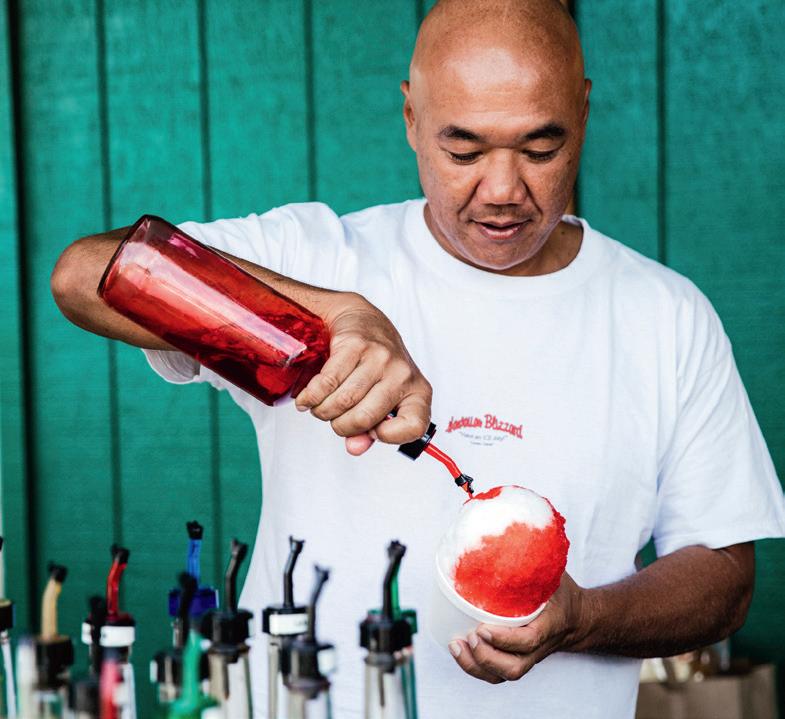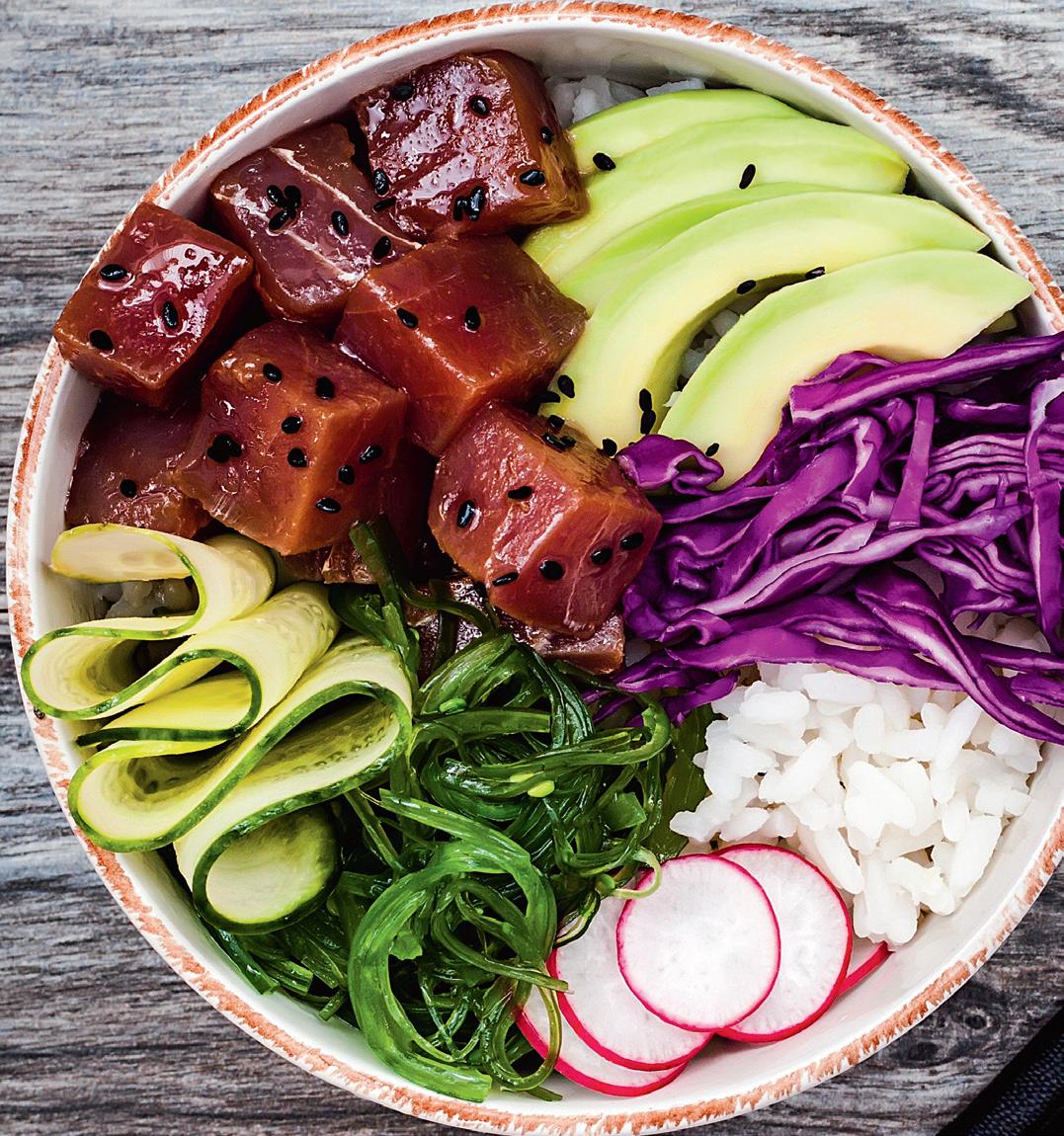
1 minute read
Must-try foods
Shave ice ▶ Japanese plantation workers brought this cool treat, which is made by shaving a block of ice, to the islands in the early 1900s and now it is available everywhere. Order an avalanche of the powdery ice drizzled with fruit syrups of almost every flavour including lilikoi (passionfruit), soursop and papaya.
Traditional flavours, fresh ingredients and global influences make these local staples unmissable.
Advertisement

Malasadas ▶ Portuguese labourers arrived in the Hawaiian Islands in 1878 to work in the plantations and their influence on the cuisine is evident with one bite of this confection. The little fried puffballs, which look like doughnuts, are given a tropical accent when filled with haupia (coconut pudding), mango and pineapple.
Poi ▶ Essentially pounded kalo (taro root), poi is more than a mild, sweet-tasting staple of locals’ diets – it is actually considered sacred. Fermented to sustain early settlers on long voyages, it has been reinterpreted with a contemporary twist. Today, you will find poi baked in bread, blended into hummus, alongside acai or in a coconutlayered cake. No lū‘au is complete without this included in the offerings.
Poke ▶ In the Hawaiian language, the word poke (pronounced poh-keh) means “to slice” and it refers to the chunks of raw fish tossed over rice, vegetables and pickles that make up a poke bowl. Although raw sashimi-grade fish – usually ahi (tuna) – is the star ingredient, the dish can also be built around cooked chicken, crab or tofu. Pump up the flavours with scallions, sesame seeds and pickles – a nod to the Japanese influence on the Hawaiian Islands’ cuisine.

Kalua pig ▶ Kalua means “made in the earth” and the authentic way to cook kalua pig is to slow-roast it over a pit of lava rocks in an imu (underground oven) until it is so tender, it falls apart. The shredded, smoky meat is traditionally served with cabbage as part of a beachside lū‘au, a traditional feast that includes music and hula, the Polynesian dance form.







